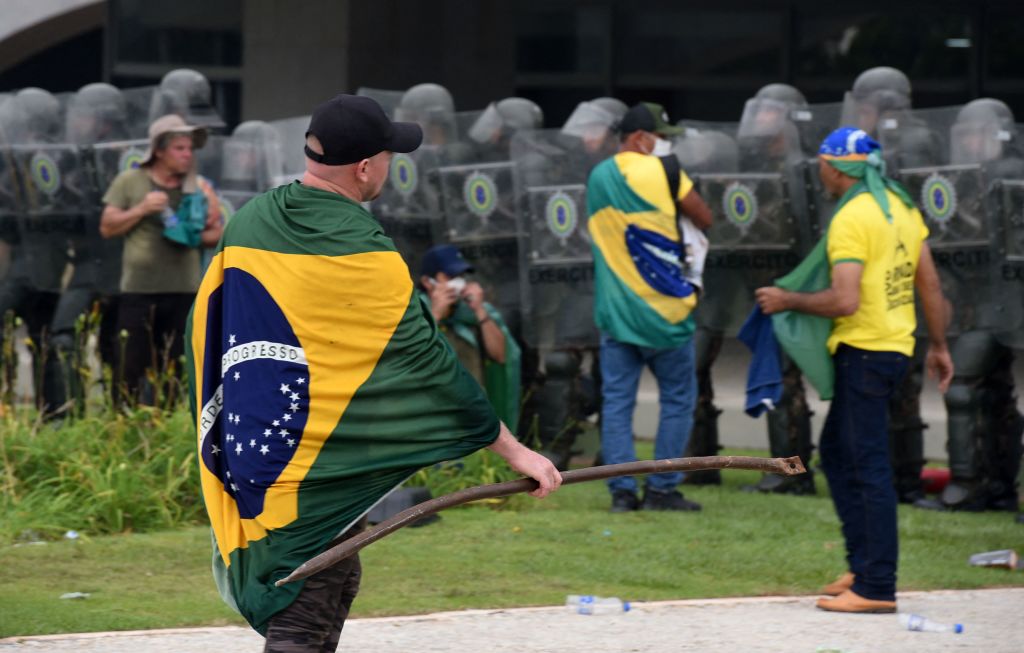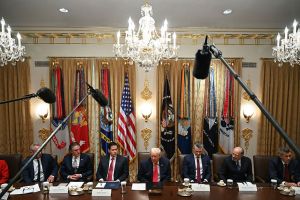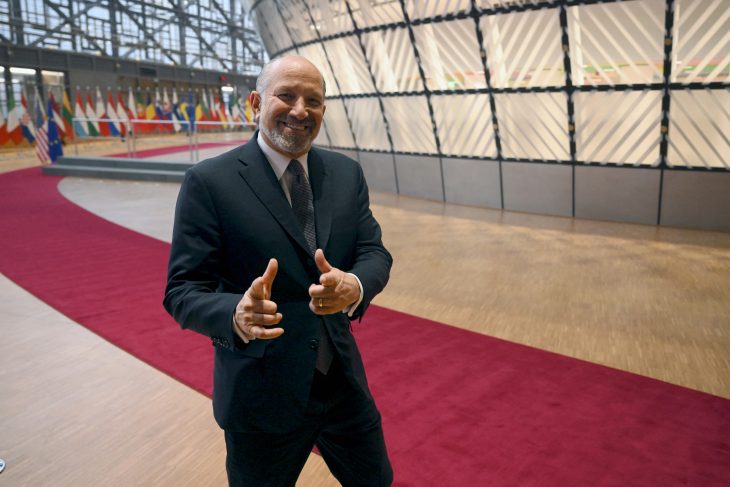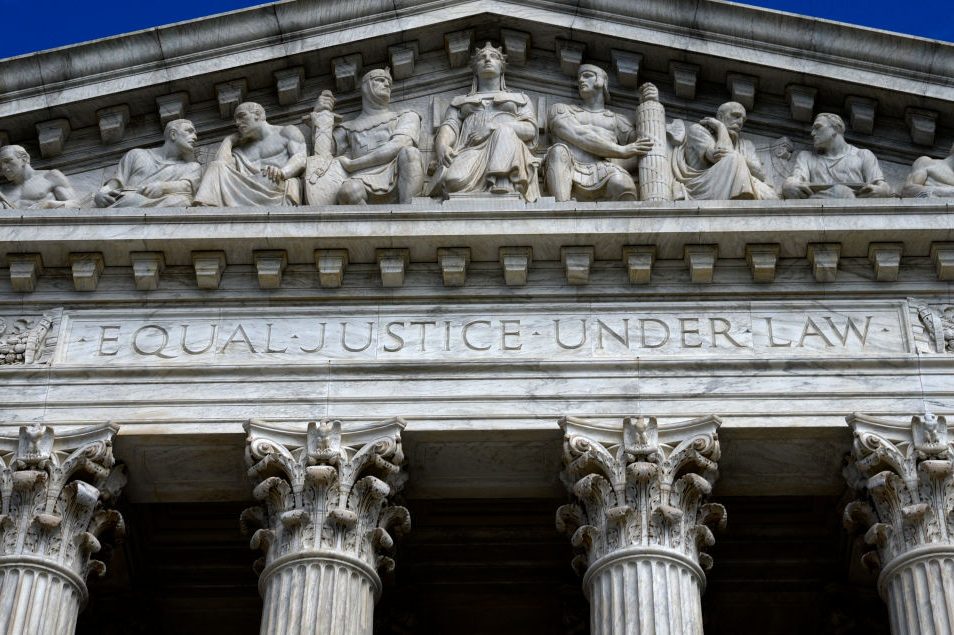Despite being the world’s fourth largest democracy, Brazil was barely on the radar for most Americans until the meteoric rise of Jair Bolsonaro in 2018. Bolsonaro’s presidential campaign caught attention because of the perceived similarities between him and Donald Trump. Many observers, including the Brazilian-American journalist Glenn Greenwald, argued this comparison was overstated. Yet while Trump and Bolsonaro may be quite different, the recent trajectory of Brazilian politics has been strikingly similar to that of its North American ally.
Almost two years to the day after the events of January 6, when supporters of Donald Trump stormed the US Capitol, backers of now-former Brazilian president Bolsonaro stormed their country’s Congress in protest of the newly inaugurated socialist president Lula da Silva. Their argument for doing so was almost identical to that of Trump’s devotees: an exceedingly close presidential election had been rife with voter fraud and an aging, left-wing establishmentarian had been illegally installed as a replacement for a right-wing populist whom the country’s political elite had always vehemently opposed.
For anyone to justify Sunday’s events in Brasilia would be a terrible mistake. Any violent incursion on a country’s democratic institutions is by definition an act of terrorism. Even Bolsonaro himself felt the need to condemn the attacks from his hideout in Florida. “Peaceful demonstrations, in the form of the law, are part of democracy,” he wrote on Twitter. “However, depredations and invasions of public buildings as occurred today, as well as those practiced by the left in 2013 and 2017, go beyond that rule.”
Yet while the international media expresses their shock, the question not being asked is why this happened. Because however atrocious their actions, Bolsonaro’s tens of millions of supporters have at least some right to feel aggrieved.
Their most credible argument is that rather than sitting in the presidential palace, Lula should really be languishing in a jail cell. In 2018, he was convicted of both corruption and money laundering as part of the biggest corruption scandal in Brazilian history. Unlike many political prosecutions in Latin America, this was the result of years of detailed investigations that were eventually turned into a Netflix series called O Mecanismo (The Mechanism). Courts found Lula had accepted over $1 million USD in bribes while also engaging in influence peddling and obstruction of justice. They sentenced him to twelve years in prison.
Given Lula’s prominence as a socialist icon, the international campaign to release him was both prolonged and intense. With support from the likes of Senator Bernie Sanders and UN human rights chief Michelle Bachelet, a narrative was created that Lula was the subject of political persecution. Having served just fifteen months behind bars, his legal team managed to have his conviction quashed by a political ally on the murky grounds that the southern city of Curitiba had “lacked the authority” to prosecute him. Ultimately, Lula was set free thanks to his own political influence rather than any compelling evidence that he was innocent.
Bolsonaro supporters not only feel that Lula never should have been allowed to run for president, but that the deck was stacked against him. Just like Joe Biden’s candidacy in 2020, Lula benefitted from almost the entire weight of not just Brazil’s political, media, and cultural establishment, but also powerful global figures from financier George Soros to Hollywood megastar Leonardo DiCaprio. Even Brazil’s most popular right-wing newspaper, O Estado de S. Paulo, declined to support Bolsonaro’s candidacy. Just as they did for Biden, social media companies also pulled out the stops to censor Bolsonaro’s supporters and anti-Lula sentiment. Pollsters, meanwhile, insisted Lula was on course for a blowout, even though the reality turned out to be anything but.
Perhaps the least convincing argument put out by the Bolsonaristas are their claims that the election, which Lula won by a razor-thin margin, had been compromised by voter fraud. Just like in the US, these assertions failed to hold up in courts. In their report following the election, the military, perhaps the only pro-Bolsonaro institution in Brazil, admitted they had not “excluded the possibility of fraud” related to electronic voting machines, but had failed to find any hard evidence.
The international media will now set about arguing that the events in Brazil point to a rising wave of anti-democratic sentiment from right-wing extremists, inspired by their boogeyman Donald Trump. These fears are not totally unfounded, yet they do not tell the whole story. In this increasingly polarized world, hardliners on the left and the right increasingly have little respect for democracy unless the result goes their way. And just as the right sometimes turns to political violence, it remains a valued tool for the left as well.
Far from taking a conciliatory tone, Lula decried the attack on Sunday evening as “barbaric” and described those responsible as “vandals, neo-fascists and fanatics” who represent “everything that is abominable in politics,” before promising to crack down and arrest all those involved. As one would expect, Lula is naturally very concerned about attacks on freedom and democracy when they threaten his political ideas, particularly his presidency. He is, however, less worried about democratic values elsewhere. Since assuming office last week, he has made moves to strengthen ties with China and Russia while restoring Brazil’s diplomatic relations with Latin American dictatorships in Cuba and Venezuela.
Ultimately, while the actions of Bolsonaro’s militants were completely inexcusable, any impartial onlooker must acknowledge that the situation in Brazil is complicated. Come to think of it, the same could be said about America’s power struggle too.

























